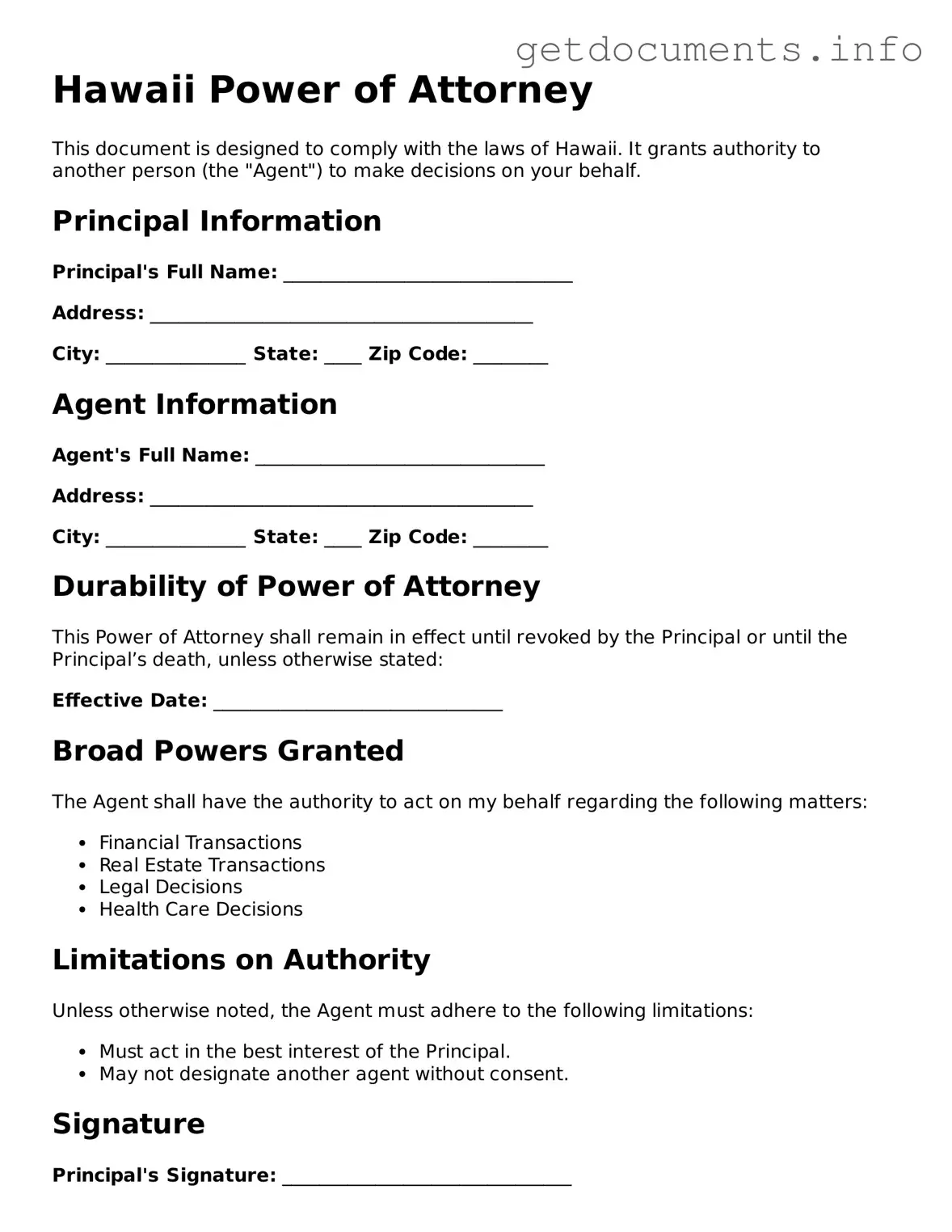Free Power of Attorney Template for Hawaii
A Hawaii Power of Attorney form is a legal document that allows an individual to appoint someone else to make decisions on their behalf, particularly in financial or medical matters. This form is essential for ensuring that your wishes are respected when you are unable to communicate them yourself. To get started on filling out the form, click the button below.
Access Power of Attorney Editor

Free Power of Attorney Template for Hawaii
Access Power of Attorney Editor
Got places to be? Complete the form fast
Fill out Power of Attorney online and avoid printing or scanning.
Access Power of Attorney Editor
or
⇩ PDF File
